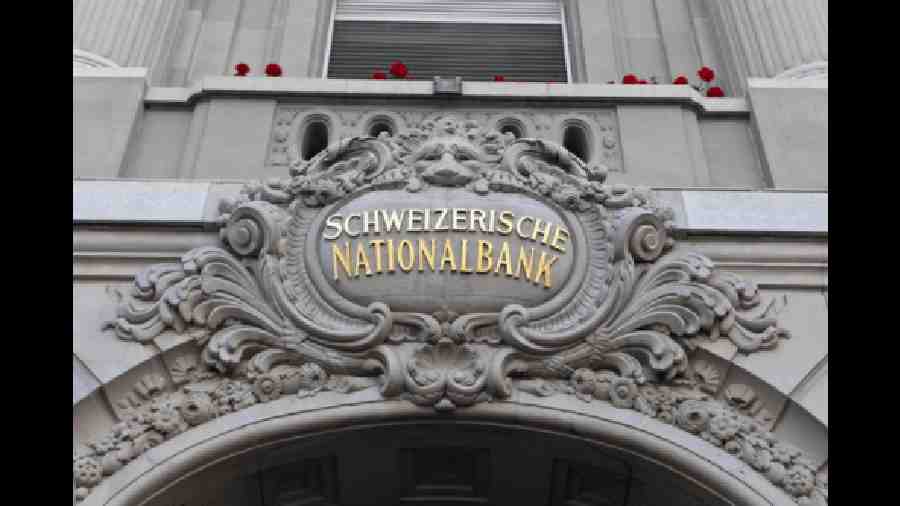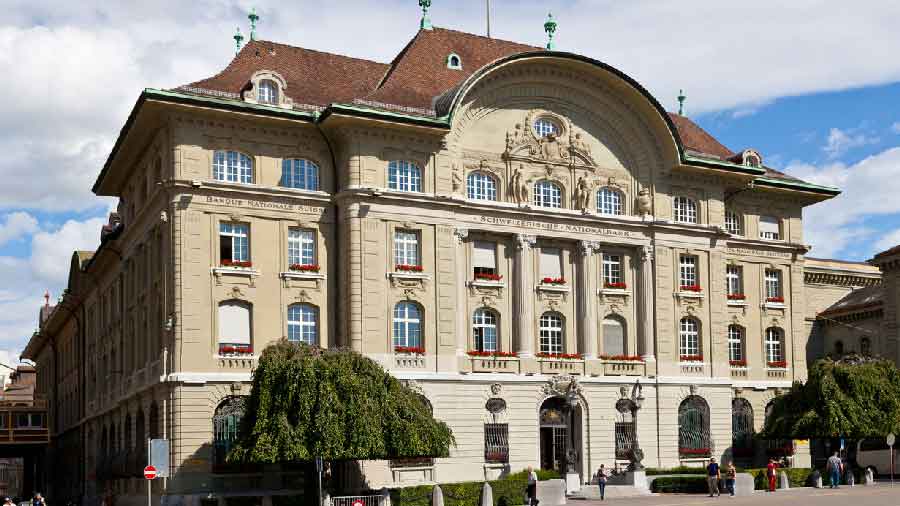Switzerland's central bank carried out the biggest hike ever to its key interest rate on Thursday, following the US Federal Reserve and other central banks around the world in aggressive moves to clamp down on inflation.
The Swiss National Bank said it could not rule out further increases beyond the rise of three-quarters of a percentage point to ensure price stability over the medium term.
The rate increased from minus 0.25 per cent to 0.5 per cent, which would be effective starting on Friday. It aims to cool off inflation that came in at 3.5 per cent in August.
Some economists have said that Switzerland appeared less vulnerable to inflation pressures because the cost of living in the wealthy Alpine country is relatively high compared to its main neighbours: European Union countries. Inflation in the 19 countries that use the euro currency hit a record 9.1 per cent in August.
A recent surge in the value of the franc compared to the euro, for example, has caused many Swiss consumers to cross the border into neighbouring countries like France or Germany to buy gasoline and other consumer goods that suddenly are relatively less expensive there.
The Swiss bank's move comes a day after the Fed also raised its key rate by three-quarters of a point for the third consecutive time and signalled that more increases were ahead.
The European Central Bank also hiked by that much earlier this month, and the Bank of England is under pressure to move aggressively at its meeting on Thursday.












